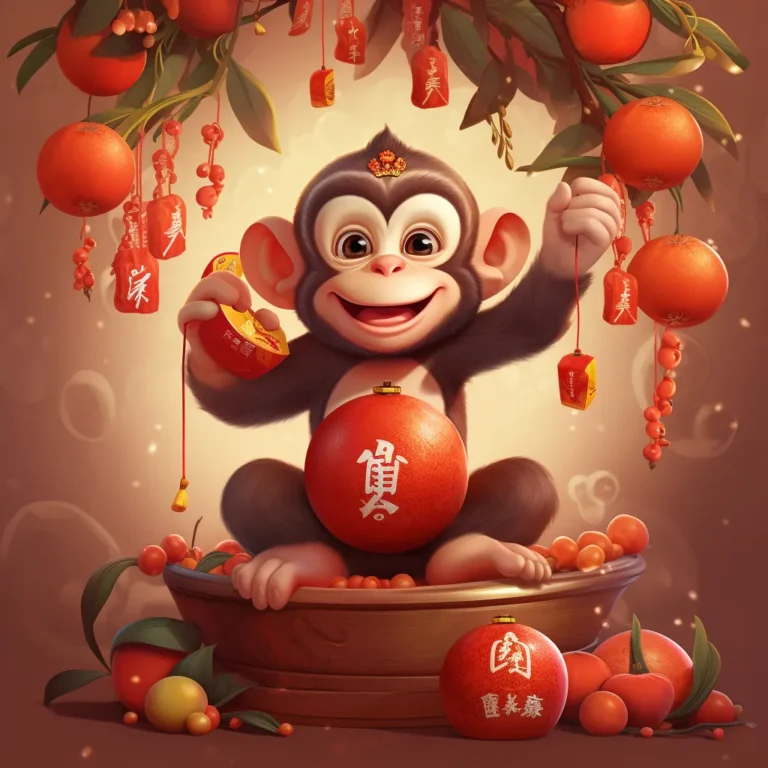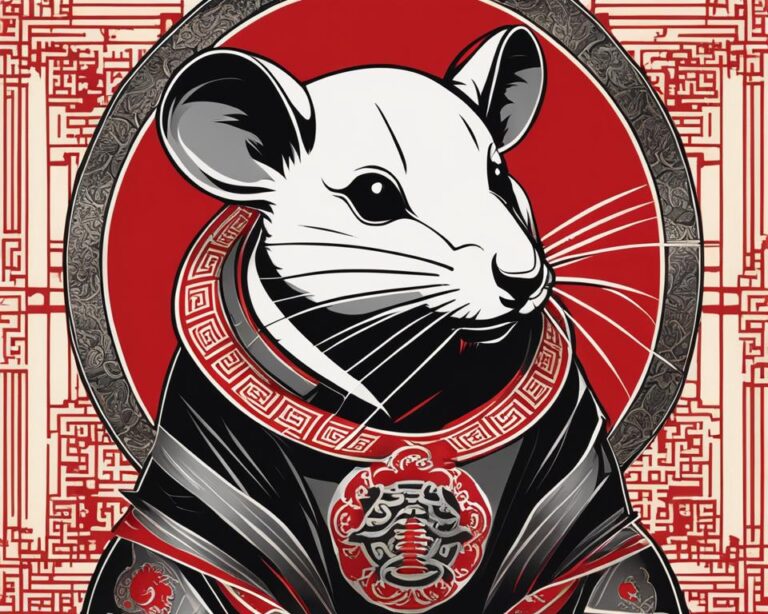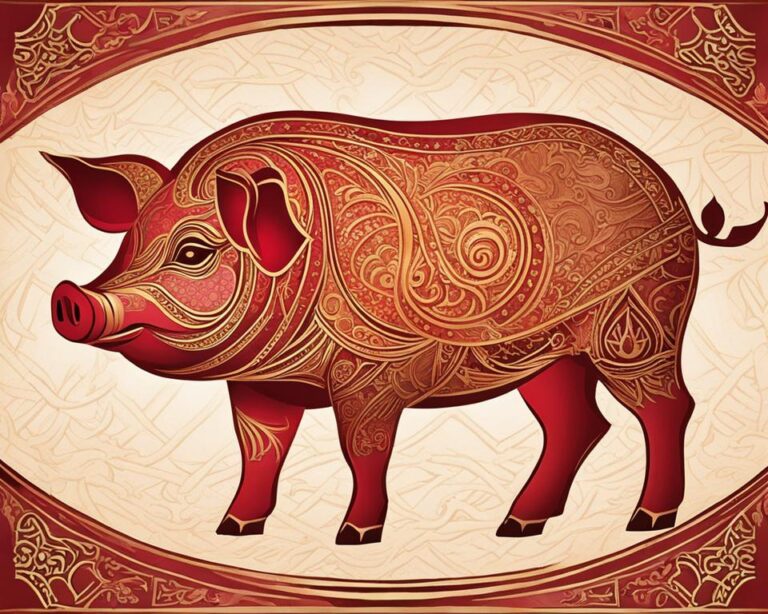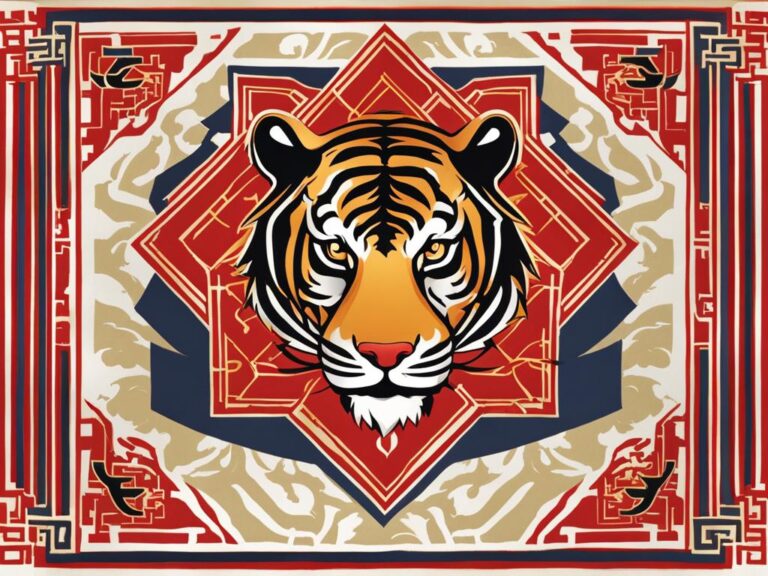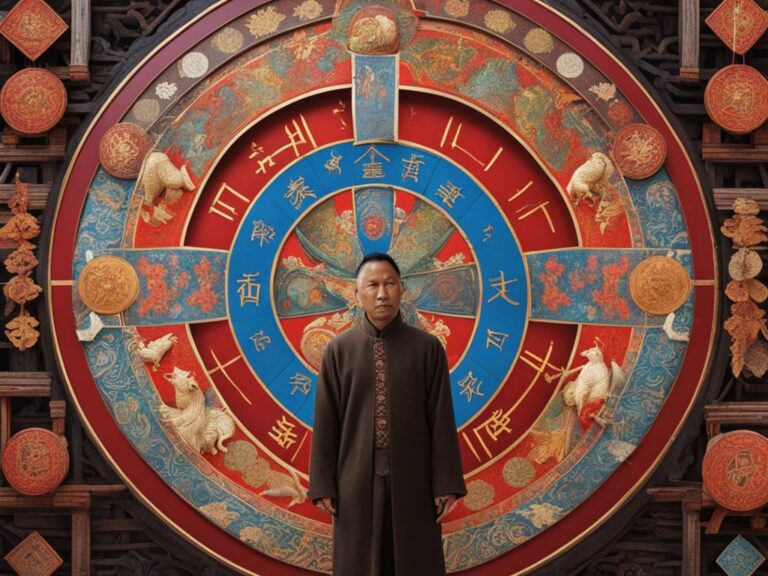In Chinese culture, the Chinese zodiac signs have been celebrated for thousands of years. The 12 zodiac animals, including the Rat, Ox, Tiger, Rabbit, Dragon, Snake, Horse, Goat, Monkey, Rooster, Dog, and Pig, each have their own unique characteristics and traits. These signs are based on the lunar calendar and play a significant role in Chinese astrology. The Chinese zodiac system is believed to provide insight into a person’s personality and compatibility with others. Understanding the history and meaning of the Chinese zodiac signs can help individuals gain a deeper understanding of themselves and those around them.
Key Takeaways
- The Chinese zodiac consists of 12 animal signs based on the lunar calendar.
- Each zodiac sign has its own unique characteristics and traits.
- Chinese astrology believes that the zodiac signs can provide insight into a person’s personality and compatibility with others.
- The zodiac animals are based on the legend of the Jade Emperor’s Race.
- The Chinese zodiac is deeply rooted in Chinese history and culture.
The Mythology Behind the Zodiac Animals
The Chinese zodiac animals are steeped in ancient mythology that adds depth and intrigue to their meaning. According to legend, the Jade Emperor held a race to determine the order of the zodiac animals. The clever Rat, riding on the back of the Ox, emerged as the winner by a narrow margin. As a result, the Rat became the first animal in the zodiac, followed by the Ox, Tiger, Rabbit, Dragon, Snake, Horse, Goat, Monkey, Rooster, Dog, and Pig.
Each zodiac animal symbolizes unique characteristics and influences a person’s personality traits based on their birth year. For example, those born in the Year of the Rat are believed to be intelligent, adaptable, and quick-witted, while those born in the Year of the Ox are seen as hardworking, reliable, and honest. The mythology behind the zodiac animals adds an enchanting dimension to the significance of each sign, providing a rich tapestry of storytelling and symbolism.
“The Jade Emperor’s Race is a captivating tale that not only explains the order of the zodiac animals but also serves as a metaphor for the values and virtues associated with each animal. The story highlights the cleverness of the Rat, the strength of the Ox, and the determination of the other animals who participated.”
The Rat: Quick-witted and Resourceful
As the first animal in the Chinese zodiac, the Rat holds a special place in the mythology and symbolism of the zodiac. The Rat is known for its agility, intelligence, and adaptability. People born in the Year of the Rat are believed to possess these traits and are often seen as resourceful problem solvers. They have a keen sense of opportunity and can navigate challenging situations with ease. While the Rat may be small in size, its cleverness and quick thinking make it a formidable force.
The Ox: Reliable and Diligent
The Ox, the second animal in the zodiac, represents reliability, hard work, and diligence. Those born in the Year of the Ox are believed to embody these qualities and are known for their steadfastness and determination. They approach tasks with a methodical mindset and can overcome obstacles through sheer perseverance. The Ox is a symbol of resilience and stability, demonstrating the importance of patience and hard work in achieving success.
The Tiger: Confident and Brave
As the third animal in the zodiac, the Tiger embodies confidence, bravery, and ambition. Those born in the Year of the Tiger are seen as natural leaders who are unafraid to take risks. They possess a strong sense of self-assurance and are driven to achieve their goals. The Tiger’s fearless nature and independent spirit make them stand out from the crowd. They are often admired for their courage and conviction, inspiring others to follow their lead.
The Rabbit: Kind and Sensitive
The Rabbit, the fourth animal in the Chinese zodiac, represents kindness, sensitivity, and artistic talent. Individuals born in the Year of the Rabbit are known for their gentle nature and empathetic qualities. They have a keen sense of intuition and are often attuned to the emotions of others. The Rabbit’s nurturing spirit and creativity make them excellent listeners and compassionate companions.
| Zodiac Animal | Year of Birth | Characteristics |
|---|---|---|
| Rat | 1924, 1936, 1948, 1960, 1972, 1984, 1996, 2008, 2020 | Intelligent, adaptable, quick-witted |
| Ox | 1925, 1937, 1949, 1961, 1973, 1985, 1997, 2009, 2021 | Reliable, hardworking, honest |
| Tiger | 1926, 1938, 1950, 1962, 1974, 1986, 1998, 2010, 2022 | Confident, brave, ambitious |
| Rabbit | 1927, 1939, 1951, 1963, 1975, 1987, 1999, 2011, 2023 | Kind, sensitive, artistic |
A Breakdown of the Chinese Zodiac Animals and their Meanings
Each Chinese zodiac animal is associated with specific personality traits. Understanding these traits can provide valuable insights into one’s own strengths and challenges, as well as how they relate to others. Here is a breakdown of the Chinese zodiac animals and their meanings:
Rat
Traits: Ambitious, charming, resourceful
Rat Compatibility: Best Matches – Dragon, Monkey, Ox; Worst Matches – Horse, Goat, Rabbit
Ox
Traits: Diligent, reliable, patient
Ox Compatibility: Best Matches – Rat, Snake, Rooster; Worst Matches – Sheep, Horse, Dog
Tiger
Traits: Confident, brave, idealistic
Tiger Compatibility: Best Matches – Horse, Dog, Pig; Worst Matches – Ox, Snake, Monkey
Rabbit
Traits: Kind, sensitive, artistic
Rabbit Compatibility: Best Matches – Sheep, Pig, Dog; Worst Matches – Rat, Ox, Dragon
Dragon
Traits: Strong, ambitious, charismatic
Dragon Compatibility: Best Matches – Rat, Monkey, Rooster; Worst Matches – Ox, Sheep, Dog
Snake
Traits: Wise, mysterious, intuitive
Snake Compatibility: Best Matches – Dragon, Rooster, Ox; Worst Matches – Tiger, Sheep, Pig
Horse
Traits: Adventurous, independent, impulsive
Horse Compatibility: Best Matches – Tiger, Goat, Dog; Worst Matches – Rat, Ox, Rabbit
Goat
Traits: Sensitive, artistic, compassionate
Goat Compatibility: Best Matches – Rabbit, Horse, Pig; Worst Matches – Ox, Dog, Rat
Monkey
Traits: Clever, witty, mischievous
Monkey Compatibility: Best Matches – Rat, Dragon, Snake; Worst Matches – Tiger, Pig, Snake
Rooster
Traits: Confident, honest, loyal
Rooster Compatibility: Best Matches – Ox, Snake, Dragon; Worst Matches – Rat, Rabbit, Dog
Dog
Traits: Loyal, protective, reliable
Dog Compatibility: Best Matches – Tiger, Rabbit, Horse; Worst Matches – Ox, Dragon, Goat
Pig
Traits: Compassionate, generous, easygoing
Pig Compatibility: Best Matches – Rabbit, Sheep, Tiger; Worst Matches – Snake, Monkey, Pig
The Chinese zodiac animals and their respective traits help individuals gain a better understanding of themselves and their interactions with others. By learning about the compatibility of different zodiac signs, individuals can navigate relationships with greater insight and harmony.
The Influence of the Five Elements on the Chinese Zodiac
In addition to the zodiac animals, the Chinese zodiac is also influenced by the Five Elements: metal, water, wood, fire, and earth. Each zodiac animal is associated with a fixed element and each year is influenced by a varying element. This interplay between animals and elements adds another layer of complexity to the Chinese zodiac system and further impacts a person’s personality and compatibility with others.
To understand the influence of the Five Elements, let’s take a closer look at the zodiac animal and element pairings:
| Zodiac Animal | Associated Element |
|---|---|
| Rat | Water |
| Ox | Earth |
| Tiger | Wood |
| Rabbit | Wood |
| Dragon | Earth |
| Snake | Fire |
| Horse | Fire |
| Goat | Earth |
| Monkey | Metal |
| Rooster | Metal |
| Dog | Earth |
| Pig | Water |
For example, the Rat is associated with the water element, while the year 2021, being the Year of the Metal Ox, is influenced by the metal element. This combination of animal and element characteristics contributes to an individual’s personality traits and compatibility with others born under different zodiac signs. The Five Elements provide additional insights and depth to the Chinese zodiac system, amplifying the understanding of oneself and others.
By examining the Chinese zodiac chart and understanding the influence of the Five Elements, individuals can gain a more comprehensive understanding of their own personality traits, strengths, and weaknesses. The combination of zodiac animal and element creates a unique profile that shapes individual characteristics and interactions with others. The Chinese zodiac system, with its intricate interplay between animals and elements, offers a rich tapestry of insights into human nature and relationships.
Chinese Zodiac Birth Year: Ben Ming Nian
A person’s Chinese zodiac birth year, also known as their Ben Ming Nian, carries a sense of caution and superstition. It is believed that during one’s birth year, they may offend the God of Age, Tai Sui, and incur his curse. To avoid potential misfortune, individuals are advised to approach their Ben Ming Nian with care and avoid making drastic changes or engaging in high-risk activities. This aspect of Chinese astrology superstition adds a layer of awareness and consideration to the traditional zodiac system.
Superstitions surrounding the Chinese zodiac birth year suggest various rituals and practices to appease Tai Sui and ward off bad luck. Wearing auspicious colors, particularly red, is believed to bring luck and protection during this time. Additionally, individuals may choose to display certain symbols or perform specific rituals to counteract the potential negative influence of their birth year. These beliefs highlight the significance placed on one’s Ben Ming Nian and the desire to navigate it safely.
While the superstitions surrounding the Chinese zodiac birth year may be seen as old-fashioned or unfounded by some, they continue to hold cultural significance and are followed by many individuals as a way to honor tradition and seek good fortune. It is important to recognize that these beliefs are deeply rooted in Chinese culture and play a role in shaping personal decisions and behavior during one’s birth year.
Table: Chinese Zodiac Birth Year Superstitions
| Superstition | Explanation |
|---|---|
| Wearing red | Believed to bring luck and protection during the birth year |
| Displaying certain symbols | Thought to counteract the potential negative influence |
| Performing specific rituals | Used to appease Tai Sui and ward off bad luck |
The Chinese Zodiac: An Intertwining of Astrology and Culture
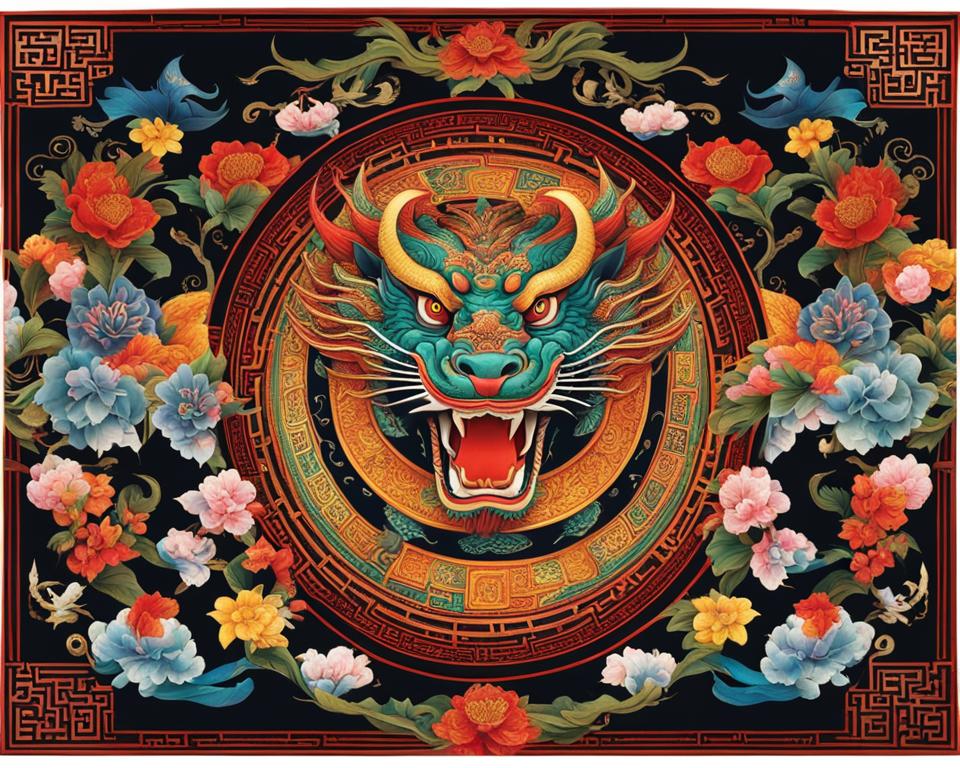
The Chinese zodiac is not just a system of astrological signs; it is a deeply ingrained part of Chinese history and culture. Originating thousands of years ago, the Chinese zodiac was initially used for divination of collective fortunes. Over time, it evolved to incorporate individual horoscopes and became a significant part of Chinese celebrations and decision-making processes.
The Chinese zodiac’s historical importance is evident in the myth behind the zodiac animals. The legend of the Jade Emperor’s Race, where the zodiac animals determined their order through a race, symbolizes the belief in divine intervention and fate. Each zodiac animal embodies specific characteristics and influences a person’s personality traits based on their year of birth. This intertwining of mythology and astrology adds depth and meaning to the Chinese zodiac system.
The Chinese zodiac is not just a set of symbols; it reflects the values, traditions, and beliefs of Chinese culture. It plays a significant role in Chinese celebrations, particularly during Lunar New Year, where zodiac animals are prominently featured in decorations and festivities. Additionally, the Chinese zodiac is often consulted in matters of personal relationships and business partnerships, reflecting the cultural importance placed on compatibility and harmony.
Understanding the history and cultural significance of the Chinese zodiac enhances one’s appreciation for this ancient tradition. It provides insight into the collective wisdom and beliefs of Chinese society, passed down through generations. The Chinese zodiac continues to captivate and inspire people worldwide, serving as a timeless reminder of the intricate connections between astrology and culture.
Table: Chinese Zodiac Animals and Their Meanings
| Zodiac Animal | Meaning |
|---|---|
| Rat | Resourceful, ambitious, charming |
| Ox | Diligent, reliable, patient |
| Tiger | Confident, brave, idealistic |
| Rabbit | Kind, sensitive, artistic |
| Dragon | Charismatic, ambitious, courageous |
| Snake | Intuitive, mysterious, refined |
| Horse | Independent, energetic, optimistic |
| Goat | Gentle, compassionate, creative |
| Monkey | Clever, playful, witty |
| Rooster | Honest, hardworking, confident |
| Dog | Loyal, faithful, reliable |
| Pig | Generous, sincere, easygoing |
Conclusion
The Chinese zodiac is a fascinating and profound system that offers valuable insights into individual personalities and relationships. With its 12 zodiac animals and the influence of the Five Elements, the Chinese zodiac is rich in symbolism and meaning. By delving into the mythology, traits, and impact of the zodiac animals and elements, individuals can gain a deeper understanding of themselves and their interactions with others.
The Chinese zodiac overview reveals a unique and timeless tradition that continues to captivate and inspire people worldwide. This ancient practice, deeply rooted in Chinese history and culture, plays a significant role in Chinese celebrations and decision-making processes. From personal relationships to business partnerships, the Chinese zodiac holds relevance in various aspects of life, testifying to its enduring significance.
Whether it’s uncovering the traits associated with your zodiac sign or exploring the compatibility between different signs, the Chinese zodiac invites individuals on a journey of self-discovery and connection. By embracing this ancient tradition, you can gain a greater understanding of yourself, those around you, and the profound relationship between astrology and culture.
FAQ
What are the 12 Chinese zodiac signs?
The 12 Chinese zodiac signs are the Rat, Ox, Tiger, Rabbit, Dragon, Snake, Horse, Goat, Monkey, Rooster, Dog, and Pig.
What is the significance of the Chinese zodiac animals?
Each Chinese zodiac animal is associated with specific characteristics and traits that are believed to influence a person’s personality based on their year of birth.
How do the Chinese zodiac animals impact compatibility with others?
Understanding the traits of each Chinese zodiac animal can help individuals understand their own strengths and challenges, as well as how they relate to others.
What are the Five Elements in the Chinese zodiac?
The Five Elements are metal, water, wood, fire, and earth. Each Chinese zodiac animal is associated with a fixed element, and each year is influenced by a varying element.
What is a Ben Ming Nian in the Chinese zodiac?
A Ben Ming Nian refers to a person’s Chinese zodiac birth year, which is believed to be unlucky. During this year, individuals are advised to be cautious and avoid major life changes or high-risk activities.
What is the historical and cultural significance of the Chinese zodiac?
The Chinese zodiac is deeply rooted in Chinese history and culture. It is used in celebrations and decision-making processes, and understanding its history enhances appreciation for this ancient tradition.
